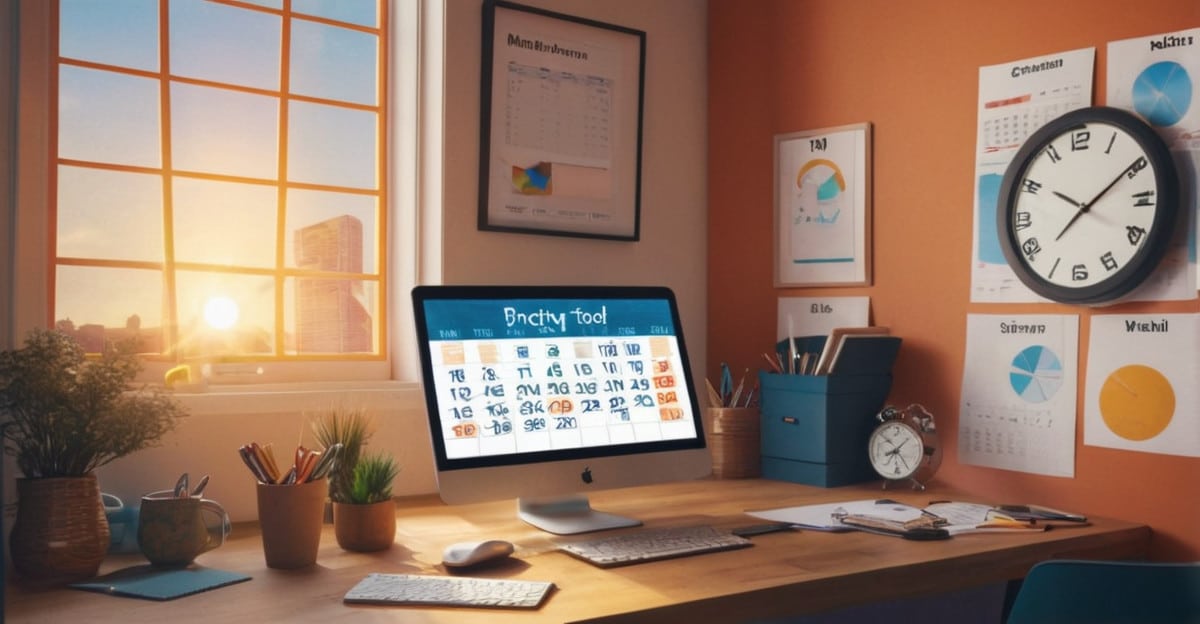
Introduction to Time Management
Time management is a crucial skill that can significantly enhance productivity and overall well-being. In 2024, with the increasing demands of both personal and professional life, understanding how to manage your time effectively is more important than ever. This comprehensive guide will delve into the essence of time management, offering practical tips and strategies to help you make the most of your day.
Effective time management allows you to accomplish more in less time, reducing stress and increasing focus. By prioritizing tasks and using time efficiently, you can achieve a better work-life balance, ultimately leading to a more fulfilling life.
The Importance of Time Management
Understanding the importance of time management is the first step towards improving it. Proper time management can lead to a host of benefits, including increased productivity, reduced stress, improved work-life balance, and enhanced personal and professional growth. In today’s fast-paced world, where distractions are plentiful, mastering time management can be the key to achieving success.
One of the primary benefits of effective time management is that it allows you to prioritize tasks and focus on what’s truly important. This not only helps in completing tasks efficiently but also ensures that you are working towards your goals. Additionally, good time management skills can lead to better decision-making, as you have more time to analyze and think through your choices.

Common Time Management Techniques
There are several time management techniques that can help you stay on track and make the most of your day. Some of the most popular methods include:
- The Pomodoro Technique: This method involves working for 25 minutes, followed by a 5-minute break. After four Pomodoros, take a longer break of 15-30 minutes. This technique helps maintain focus and prevents burnout.
- Time Blocking: Allocate specific blocks of time for different tasks throughout your day. This helps in organizing your schedule and ensures that you dedicate enough time to each task.
- The Eisenhower Matrix: Categorize tasks based on their urgency and importance. Focus on tasks that are both urgent and important, and delegate or eliminate tasks that are neither.
By incorporating these techniques into your daily routine, you can improve your productivity and manage your time more effectively.
Setting SMART Goals for Better Time Management
Setting goals is an essential part of effective time management. However, not all goals are created equal. To maximize your productivity, it’s important to set SMART goals, which are:
- Specific: Clearly define what you want to achieve.
- Measurable: Ensure that you can track your progress and success.
- Achievable: Set realistic goals that are within your reach.
- Relevant: Align your goals with your broader objectives and values.
- Time-bound: Set a deadline for achieving your goals.
By setting SMART goals, you can create a clear roadmap for your tasks and ensure that you are working efficiently towards your objectives.
Tools and Apps for Time Management
In today’s digital age, there are numerous tools and apps available to help you manage your time more effectively. Some of the most popular ones include:
- Trello: A project management tool that allows you to organize tasks and projects using boards, lists, and cards.
- Todoist: A task management app that helps you keep track of your to-do lists and deadlines.
- RescueTime: A time-tracking app that provides insights into how you spend your time on different activities.
- Google Calendar: A versatile calendar app that allows you to schedule events, set reminders, and share your calendar with others.
By leveraging these tools, you can streamline your workflow, stay organized, and make the most of your time.
Overcoming Common Time Management Challenges
Even with the best intentions, many people struggle with time management due to various challenges. Some common obstacles include:
- Procrastination: Delaying tasks can lead to a buildup of work and increased stress. Overcome procrastination by breaking tasks into smaller, manageable steps and setting deadlines for each step.
- Distractions: Minimize distractions by creating a dedicated workspace, turning off notifications, and setting boundaries with others.
- Overcommitment: Learn to say no and prioritize your tasks. Focus on what truly matters and delegate or eliminate less important tasks.
By addressing these challenges, you can improve your time management skills and achieve your goals more effectively.

The Role of Time Management in Professional Success
Effective time management is a key factor in achieving professional success. By managing your time well, you can:
- Increase Productivity: Focus on high-priority tasks and complete them efficiently, leading to better performance and results.
- Reduce Stress: A well-organized schedule helps in reducing the pressure of deadlines and workload, leading to a healthier work environment.
- Improve Work-Life Balance: Proper time management allows you to allocate time for both work and personal life, leading to a more balanced and fulfilling life.
By mastering time management, you can enhance your professional growth and achieve your career goals more effectively.
The Impact of Time Management on Personal Life
Time management is not just important for professional success; it also plays a crucial role in enhancing your personal life. By managing your time well, you can:
- Spend Quality Time with Loved Ones: Allocate time for family and friends, strengthening your relationships and creating lasting memories.
- Pursue Hobbies and Interests: Make time for activities that you enjoy, leading to a more fulfilling and balanced life.
- Improve Mental and Physical Health: By reducing stress and managing your schedule effectively, you can focus on self-care and maintain a healthy lifestyle.
By prioritizing time management in your personal life, you can achieve a better work-life balance and enjoy a more satisfying life.
Time Management Strategies for Remote Work
With the rise of remote work in 2024, effective time management has become even more critical. Here are some strategies to help you manage your time while working remotely:
- Create a Dedicated Workspace: Set up a designated area for work to minimize distractions and maintain focus.
- Establish a Routine: Stick to a consistent schedule to create a sense of structure and discipline.
- Set Boundaries: Clearly define your working hours and communicate them with others to avoid interruptions.
- Take Regular Breaks: Schedule short breaks to recharge and prevent burnout.
By implementing these strategies, you can manage your time effectively and maintain productivity while working remotely.
Conclusion: Mastering Time Management in 2024
In conclusion, mastering time management is essential for achieving both personal and professional success in 2024. By understanding the importance of time management, setting SMART goals, leveraging tools and apps, and overcoming common challenges, you can enhance your productivity and efficiency. Whether you’re working remotely or in an office, effective time management can lead to a more balanced and fulfilling life.
Remember, time is a finite resource, and how you manage it can make all the difference in achieving your goals and living a happy, productive life. Start implementing these strategies today and take control of your time for a brighter future.





